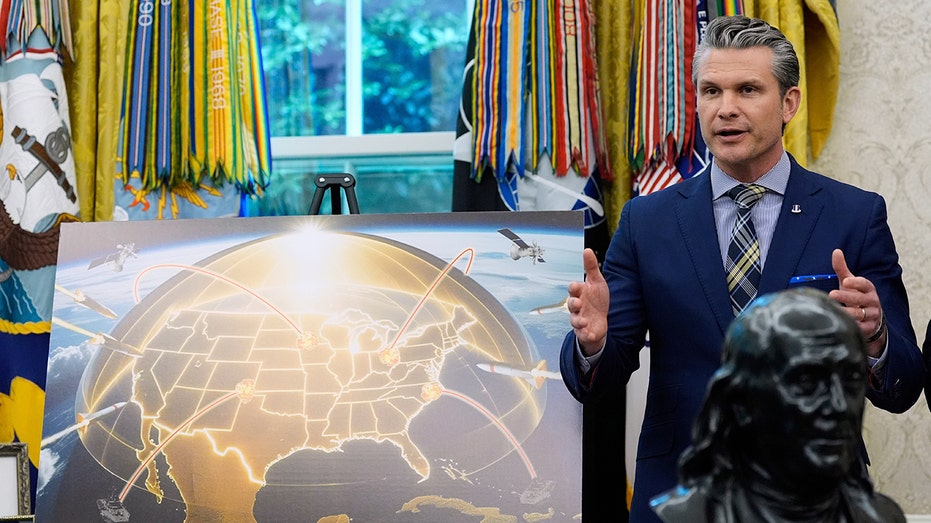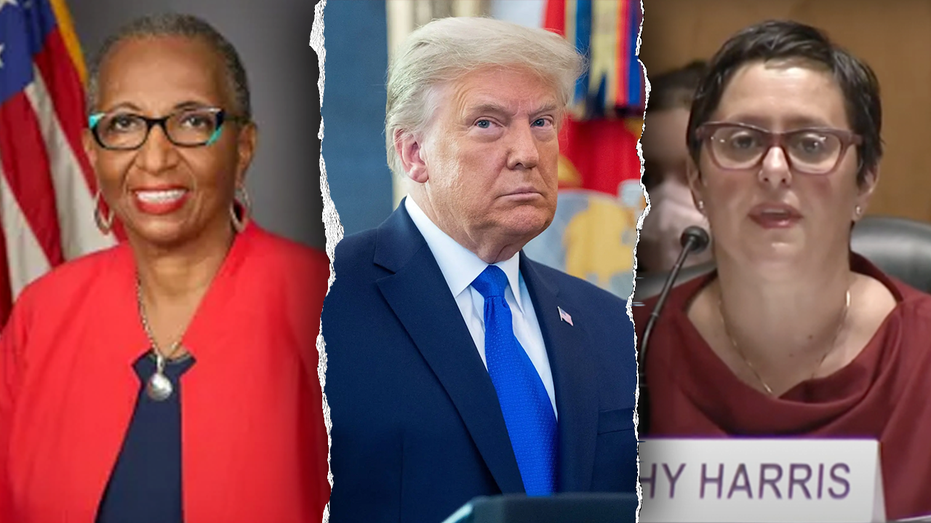I'm on the verge of finishing my dream course at Harvard Business School. With Trump's crackdown on foreign students, I don't know if I'll be let back on campus.
Shreya Mishra Reddy.
- Shreya Mishra Reddy is on the cusp of finishing Harvard Business School's Program for Leadership Development.
- But Trump's decision to block Harvard from enrolling foreign students has thrown her plans into disarray.
- She said she has not heard from the university on the matter.
This as-told-to essay is based on a conversation with Shreya Mishra Reddy, a 33-year-old Visa technical program manager completing Harvard Business School's Program for Leadership Development. It has been edited for length and clarity. BI has verified her enrollment in the program.
I'm an international student at Harvard Business School's Program for Leadership Development, and I'm reeling from the news of the Trump administration blocking Harvard from enrolling foreign students.
I moved to the US from India in 2021 to do my master's at Duke University, and then got my dream job at Visa in Austin.
After I started working at Visa, I came across this program at Harvard, which is an alternative to their executive MBA. I applied to that program, and I absolutely did not think that I would get accepted, but I did. It was one of the best moments of my life.
When I told my parents, they were so excited. I went from being a first-generation immigrant in the US to being accepted to one of the best schools in the world.
The news of the enrollment ban left me numb
I took out a loan to fund the $50,000 tuition fee, and now I'm on the verge of completing the course. I just have one module left, from May to July.
I was at home in the middle of a meeting when I saw the news pop up on my phone that Harvard had been banned from accepting international students.
I went numb for a minute because I knew my module was supposed to start in a few days, and I was supposed to travel to Boston in July. My tickets are all booked.
When I read the news, the first thing I did was text my father back in India, saying that I don't know if I'm going to be able to graduate from Harvard. I don't know if I will be allowed back on campus or able to travel to Boston at all, and I'm really worried.
I've emailed the university to ask what was happening and if they had an update for us, but I haven't heard back yet.
I hope to hear back soon because the program starts in just a few days.
The future looks uncertain
I was excited to start classes again, meet all the professors back on campus, and see my batchmates again.
Harvard's program was one of the best experiences I've had so far. The professors were extremely invested in our growth, and the candidates in my program held C-suite positions in Big Tech companies. The class discussions were excellent.
With this news, I don't plan to enroll in another school for the executive program.
Getting into Harvard was not just about a degree; it was about studying in one of my dream schools. It does not make sense for me to try to pursue the same kind of degree from any other school or country.
I'm now on an optional practical training (OPT) visa that expires in January, and I've not had any luck getting picked for an H-1B visa. So, I'm planning to leave the country in January.
But I don't know where I'll go or what I'll do. It's all up in the air now.
:max_bytes(150000):strip_icc():format(jpeg)/Michael-Jackson-tout-053024-3b0c76176bc64d48843dbf3d44ce1908.jpg)
:max_bytes(150000):strip_icc():format(jpeg)/Megan-Fox-machine-gun-kelly-and-baby-052225-56ba1516b13949248ae75d41726286b2.jpg)
:max_bytes(150000):strip_icc():format(jpeg)/Travis-Barker-and-Kourtney-Kardashian-wedding-anniversary-052225-f58fba61d6a84585b0a6b420ea9f28e6.jpg)
:max_bytes(150000):strip_icc():format(jpeg)/Dolly-Parton-and-Jennifer-Aniston-052225-5e2f20d58a3742ceb40387b3177a47ed.jpg)
:max_bytes(150000):strip_icc():format(jpeg)/Keith-Urban-Nicole-Kidman-at-the-60th-Academy-Of-Country-Music-Awards-2025-ACM-Awards-0_05082025-3d4e80840607494d944d13c18e2d0ed3.jpg)
:max_bytes(150000):strip_icc():format(jpeg)/Erika-Jayne-and-Jesse-Solomon1_11252019-5b1613c8ec214429a8d85baf1020a858.jpg)
:max_bytes(150000):strip_icc():format(jpeg)/Glenn-Howerton-Rob-McElhenney-Kaitlin-Olson-052225-404da81a48584e4ba845669672d7a931.jpg)
:max_bytes(150000):strip_icc():format(jpeg)/jojo-siwa-2-Universal-Orlando-Resort-Celebrates-Grand-Opening-Universal-Epic-Universe-2025-052225-745f0c4f47504a9493346d974102837e.jpg)
:max_bytes(150000):strip_icc():format(jpeg)/Chris-Brown-Justin-Bieber-052225-dc57019695f848d09755b81e9ca0ffba.jpg)

:max_bytes(150000):strip_icc():format(jpeg)/Scott-Disick-Kim-Kardashian6_11082010-291728487f844ae8a567190dbc8f4668.jpg)
:max_bytes(150000):strip_icc():format(jpeg)/Valerie-Bertinelli-Instagram-042024-02-aead96ecd94340e888e835c46a4d977b.jpg)

:max_bytes(150000):strip_icc():format(jpeg)/peo-amazon-nortiv-8-shoes-tout-e558fa1797f44d62905ead55b6d24874.jpg)
:max_bytes(150000):strip_icc():format(jpeg)/Beyonce-Levis-052125-tout01-256ccb183ea44aaf8e41f18bf4c65fa4.jpg)
:max_bytes(150000):strip_icc():format(jpeg)/kim-kardashian-law-grad-052225-4c57ff2c84a24270ae7bf627378492ec.jpg)
:max_bytes(150000):strip_icc():format(jpeg)/Dolly-Parton-husband-Carl-Dean-120524-tout-23c4581f9b1248079e88ba10ccdf196c.jpg)
:max_bytes(150000):strip_icc():format(jpeg)/peo-nyc-summer-beauty-fashion-recs-tout-95cf691891f54648a246e52419a6a8d4.jpg)